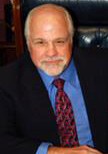© 2014 The Texas Lawbook.
By Mark Curriden – Oklahoma City – (September 1) – On May 18, 2012, “Jane Doe” filed for divorce against John Doe. The petition seemed as routine as the thousands of other divorces filed in courthouses everyday across the country: she claimed her husband had cheated and she wanted half of everything.
But there was nothing routine about this divorce at all. In fact, it may go down in the law books as the most expensive – and possibly the most financially complex – divorce in U.S. history.
Jane Doe, it was revealed many months later, is actually Sue Ann Hamm. Her husband, Harold Hamm, is the founder, chairman and CEO of Continental Resources, a huge oil and gas company based in Oklahoma.

If Mrs. Hamm, who is a former lawyer for Continental, wins what she is seeking, which lawyers say is somewhere between $3 billion and $6 billion, she would instantly become one of the richest women in the world. Lawyers for Hamm contend she deserves far less than a billion dollars.
“This divorce has all the elements, but it is extraordinary only because of the size of the estate and the enormous amounts of money involved,” says Charlie Hodges, a Dallas family lawyer who specializes in representing wealthy business executives and professional athletes in divorce cases.

But the Hamm divorce raises significant legal questions beyond a spurned wife and money – questions that concern some of the nation’s largest corporations.
Legal exerts say the case raises the issue of when should a company such as Continental should publicly disclose when its top executive and majority shareholder is getting a divorce.
The U.S. Securities and Exchange Commission requires publicly traded companies to disclose critical information, or “material events,” that shareholders and potential investors would want to know about corporate leadership.
Financial and legal analysts say that a $3 billion award in favor of Mrs. Hamm would almost certainly mean that Hamm would have to sell so much stock to cover the judgment that he would no longer be the largest stockholder in Continental.
“You could argue that because the future control of the company is in jeopardy because of this divorce, that it should have been disclosed,” says former SEC chief enforcement trial lawyer Toby Galloway, who is now a partner at Kelly Hart & Hallman in Fort Worth.

Most divorce trials last a day or two. This case is already in week four of a trial expected to last nine weeks. The witness list includes Continental corporate executives, economists and business valuation experts. Tens of thousands of pages of corporate documents, internal company emails and minutes from board meetings have been produced.
The Hamms’ personal and professional history is as much a factor in determining the monetary outcome of the trial as is the price of Continental’s stock, according to legal experts.
Harold Hamm’s story is truly a rags-to-riches tale. He was born the 13th child of sharecroppers in 1945. His family lived in a one-bedroom house with no electricity or running water. He sometimes skipped elementary school to help his father at his work picking cotton. His first job, at age 17, was pumping gas, changing oil and repairing flat tires.
At 22, Hamm borrowed $1,000 to buy a Bobtail Ford oilfield service truck, which introduced him to the energy industry. Meanwhile, he studied geology in his spare time, and, in 1967, he created his exploration and production company. His second well drilled struck black gold, producing 75 barrels a day.
Continental was valued at nearly $50 million a year in 1987 when Hamm’s first wife, Judith Ann, filed for divorce claiming he was having an affair with one of his lawyers, Sue Ann Arnall, who handled land deals for Continental.
A year later, Hamm married Sue Ann, who was a decade his junior, in a wedding in Las Vegas.
During the next two-and-a-half decades, Hamm focused Continental’s attention on oil and gas deposits in the shale in North Dakota. Continental went public in 2007. Since then, the company’s stock value has jumped nearly 500 percent.
The company’s value skyrocketed to upwards of $28 billion. Hamm became known as the “King of the Bakken.” Forbes magazine, which featured Hamm as its cover article in May, estimates his net worth at $19.4 billion, making him the 36th richest person in the world. Even so, media reports say he still lunches on burgers from Sonic and eats dinner at Applebees.
Meanwhile, Mrs. Hamm continued representing Continental in land acquisitions. Reuters, a news service, reports that the company in 1996 described her as a vice president over crude oil marketing in documents filed with the U.S. Department of Interior. That same year, she testified before Congress as a spokeswoman for Continental.
In April 2012, the Hamms attended Time magazine’s black tie gala, at which he was named one of the 100 most influential people in the world.
The couple hosted a fundraising event on May 9, 2012, for Mitt Romney, bringing in about $2 million for his presidential campaign.
A week later, she filed for divorce, accusing her husband of infidelity. Hamm’s lawyers claimed the couple had been involved in a loveless marriage since 1998. Court documents reveal that Mrs. Hamm secretly video recorded her husband’s activities at their home for years, though the videos have never been made public.
Under Oklahoma law, Hamm gets to keep everything he had, including his 122 million shares of Continental stock, at the time of the couple’s marriage.
But Mrs. Hamm has a legal claim to any increase in the value of the stock or other assets if either of the couple’s actions during the past 26 years contributed to that increase, according to family lawyers familiar with Oklahoma law.
“This has added a very bizarre twist that I have never witnessed in a divorce case,” says Brian Webb, a Dallas family lawyer who has represented many wealthy husbands and wives in divorce cases.

As a result, the trial is basically a battle of valuation experts. The couple had no prenuptial agreement.
Mrs. Hamm’s expert, who compared Continental’s success to the financial results of dozens of other oil and gas companies, found that his client should be eligible for up to half of $17 billion.
Dr. Kenneth Button, in a 122-page report, said the average capital investment return of the other energy companies during the past 25 years has been about 700 percent. During that same time, he said, Continental has experienced a 44,000 percent rate of return.
Lawyers familiar with Hamm’s case say his experts are expected to present testimony that nearly all of Continental’s stock increase is the result of factors other than the CEO’s efforts.
“Hamm didn’t invent fracking or the new horizontal drilling technology or cause the price of oil to increase because of turmoil in the Middle East,” says Hodges. “These are all factors that Hamm’s lawyers and experts are going to point to as being mostly responsible for the increase in the company’s value.
“This could be a situation where the wife’s lawyers are going to be greatly disappointed, if you call getting only $500 million or so disappointing,” he says.
But Mrs. Hamm’s lawyers are expected to use his company’s own SEC filings as evidence against her husband.
For example, Continental’s 2013 public proxy statement describes Hamm as “one of the driving forces behind the company and its success.”
“Mr. Hamm has successfully grown the company through his leadership skills and business judgment,” Continental wrote.
“Those kind of boastful statements by Hamm and the company are exactly what may come back and bite him in the ass in this trial,” says Webb.
Continental officials did not respond to multiple requests for comment for this article, but company spokeswoman Kristin Miskovsky recently told Reuters that “this private matter has not and is not anticipated to have any impact or effect on the company’s business or operations.”
But legal experts say that Continental’s decision to not disclose Hamms’ divorce when it was filed also raises its own serious questions.
The SEC has increasing encouraged publicly traded companies such as Continental to publicly disclose “material events” involving corporate executives, especially those who are viewed as leading or controlling the companies.
Securities lawyers point out that the divorce was kept secret from the public for nearly 10 months and that Continental officials still have not filed any disclosures indicating that the divorce may cost the primary owner of the company his majority ownership and control of the business.
A financial analysis by Reuters found that Hamm would likely be forced to sell at least 20 percent of his shares in Continental to pay for any divorce judgment of $3 billion or more. Analysts say that Hamm could pay for any award under $3 billion by borrowing against his stock.
Another option, according to legal experts, is that Hamm sign-over shares to his wife as part of a potential settlement.
Federal securities laws require publicly traded companies to disclose “material events” that could impact the future of the company.
The question, according to legal experts, is whether the mere possibility of Hamm losing control of Continental is a “material event” or is it when there is an actual transfer of stock ownership.
“Whether Hamm is forced to sell the stock on the open market to fund a large judgment or give the wife 20 or 30 percent ownership of the company, it would impact the company and would be of interest to investors,” says former SEC enforcement attorney Jeff Ansley, who is now a partner at Bell Nunnally & Martin.

“The moment any of that became a possibility, the company should have reported it publicly,” he says.
Legal experts point out that the SEC reportedly opened an investigation in 2009 when Apple Inc. declined to publicly disclose that its CEO, Steve Jobs, had been diagnosed with pancreatic cancer. No charges were ever brought.
But lawyers point out that Jobs owned only a small portion of Apple, while Hamm owns 68 percent of Continental.
Even so, many securities law experts say that any claims against Continental by the SEC or shareholders are a long shot.
“The problem is that we don’t know what the outcome of the divorce claim will be and, as a result, there is no legal requirement of disclosure at this point,” says Wes Loegering, a partner at Jones Day in Dallas and an expert in securities litigation. “The problem any claim would face is that the stock price of Continental has significantly out-performed the market since the filing of the divorce.
“Where is the injury? Where are the damages?” asks Loegering. “Any lawsuits against Continental over this would appear to be impossible to win.”
At the end of the day, many legal experts, still wonder if the Hamms will resolve the case before the end of the trial.
“This is a case that screams for settlement,” says former Texas Family Court Judge Marilea Lewis, who is now the managing partner at Godwin Lewis in Dallas. “But sometimes, people feel that their marriage has been violated and they want the world to know. Sometimes people just want to have their day in court.”
© 2014 The Texas Lawbook. Content of The Texas Lawbook is controlled and protected by specific licensing agreements with our subscribers and under federal copyright laws. Any distribution of this content without the consent of The Texas Lawbook is prohibited.
If you see any inaccuracy in any article in The Texas Lawbook, please contact us. Our goal is content that is 100% true and accurate. Thank you.
